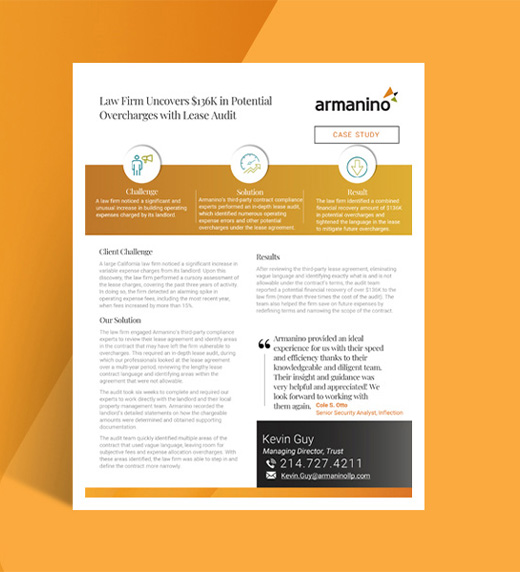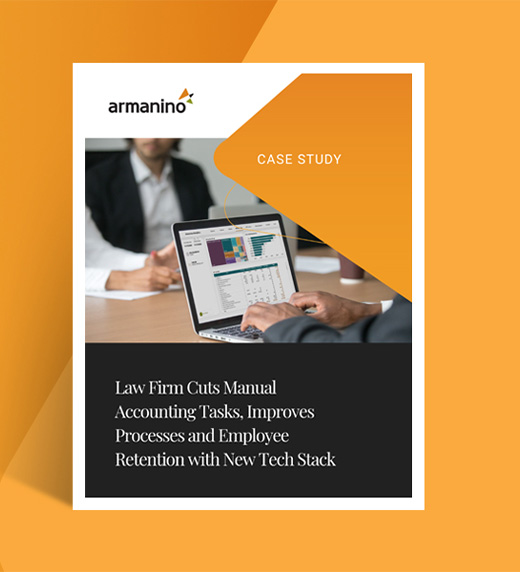
Law firms often pay for certain expenses while providing services for their clients’ legal matters and cases. These expenses can include court fees, outside expert fees, investigation costs, deposition fees and other necessary costs. The issue is determining the tax treatment of these costs and whether law firms are entitled to claiming deductions for these expenses when paid.
Case law* has dictated that if the law firm’s agreement with the client stipulates that these costs are to be reimbursed to the law firm, then they should be treated as advances to the client (essentially a loan). Therefore, the law firm is not entitled to claim a deduction when paid, and the subsequent reimbursement would not be income; instead it is a repayment of the loan.
If certain client expenses are not being reimbursed due to a lost case or other reasons, the law firm would be entitled to claim a deduction at that point, as there is no longer an expectation of being reimbursed.
The expenses detailed above are often called “hard costs” and are direct costs incurred by the law firm in servicing their clients’ work. There is also a second category of client expenses, known as “soft costs.” These can include charges for administrative services to be billed to clients for copying, faxing, postage and similar costs. Unlike the treatment noted above for hard costs, these soft costs are to be expensed when paid and treated as income if reimbursed.
If a law firm has been utilizing an incorrect treatment for client expenses, it may file for a change in accounting method via Form 3115 with the ability to amortize the adjustment over four years. This is an allowable automatic change request that provides audit protection for prior year tax returns. For law firms that enact this accounting method change, this adjustment can create issues in determining the appropriate allocation of income and capital to the partners, as the current advances may span multiple years and partner allocation percentages often vary year to year.
The correct treatment of client expenses, as noted above, creates phantom income and cash flow issues for law firms, which is often a reason law firms do not follow the appropriate treatment. Many law firms utilize third-party financing, such as a line of credit, to fund their client expenses. This is more common in practice areas that require large client expenditures, such as personal injury cases. By financing client expenses, law firms reduce the cash flow burdens associated with these expenses, maximizing cash flow for operations and profit distributions to owners.
Aside from the income tax issues noted above, the treatment of client expenses may have implications for business license purposes. Certain cities, such as Los Angeles, impose a business license renewal fee based on the gross receipts of a business.
As hard costs are not income when reimbursed, they should not be included in the gross receipt amounts reported for these renewals. Many law firms are likely overpaying their business license fees due to this incorrect treatment.
For questions or to learn more, contact our law firm tax experts.


